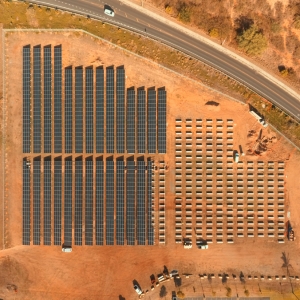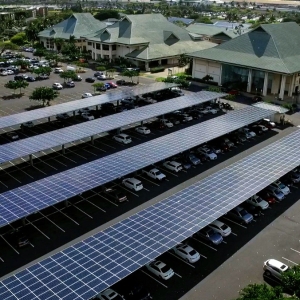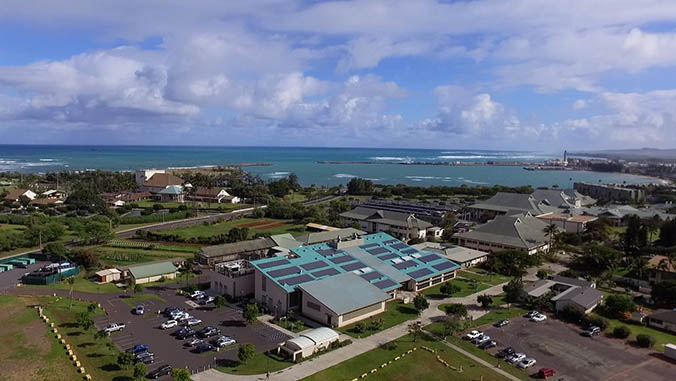The next virtually net-zero University of Hawaiʻi campus is up and running. Through a combination of solar photovoltaic energy, distributed energy storage and energy efficiency measures, University of Hawaiʻi Maui College has reduced the campus’ use of fossil fuel for energy by an estimated 100%.

More than 3,300 photovoltaic (PV) modules were installed, generating 1.58 MW of power, enough to power more than 200 homes annually and offsetting greenhouse gas emissions equal to 4,400 barrels of oil a year. The project also includes 13.93 MWh of battery storage.
“This project speaks to our college’s innovation, to our responsibility to our community. It provides a deeper experience for our students and shows what we can do to protect our values and our environment,” said Chancellor Lui Hokoana. “It also offers a living laboratory for one of the most exciting and dynamic career paths through our Sustainable Science Management program.”
UH Maui College is among the first campuses in the nation to generate 100% of its energy from on-site solar photovoltaic systems coupled with battery storage. The project is part of a partnership with Johnson Controls and Mauō, a subsidiary of Pacific Current, and also includes four UH community college campuses on Oʻahu.

UH Maui College follows successful energy use reduction efforts at Leeward CC, which became the first net-zero UH campus in July 2020, and Windward CC, which reduced its carbon footprint by about 70% in September 2020. Honolulu CC, Kapiʻolani CC and Kauaʻi CC are also on track to reduce their carbon footprints.
“We celebrate UH Maui College’s achievement and look forward to Kapiʻolani CC and Honolulu CC and Kauaʻi CC joining the UH Community College campuses that are making major gains towards UH’s goal of becoming net-zero by 2035,” said Erika Lacro, UH vice president for community colleges.
Hawaiʻi became the first state in the country to make an unprecedented commitment to achieve 100% renewable energy by 2045. In 2015, UH and the Hawaiʻi Legislature established a collective goal for the university system to be “net-zero” by January 1, 2035, meaning the system would produce as much renewable energy as it consumes across its 10 campuses.


